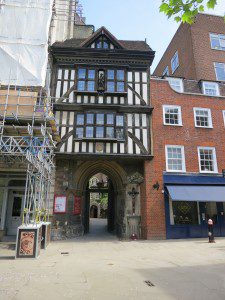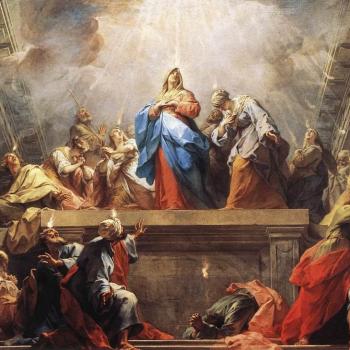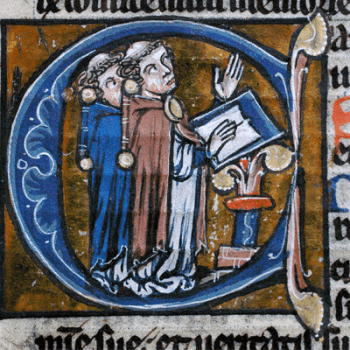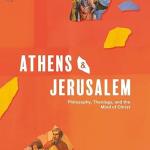Yes, it did. But not the way you were taught in Sunday School.
Let me explain.

As I established in my previous post, vernacular translations of the Bible existed in England long before the Reformation. Moreover, they were used by clergy and laity alike. I venture that many late medieval English folk were just as well versed in scripture as many of their Reformation counterparts (although it is certainly true that the sections of scripture they knew would have varied).
The question then stands: what about medieval ecclesiastical proclamations banning vernacular translations of the Bible?
Yes, the medieval church did make prohibitions against vernacular Bibles. Pope Gregory VII forbade publication of vernacular scripture in Bohemia in 1080; the papacy declared in 1199 that vernacular translations were praiseworthy but dangerous; the Synod of Toulouse in 1229 directed a canon against the misuse of scripture (which included forbidding vernacular texts); and–the most famous–in 1408 the Third Synod of Oxford forbade translating the Bible into English.
But these restrictions on vernacular Bibles must be contextualized. As Frans van Liere so astutely states in his An Introduction to the Medieval Bible (p. 203): “On the one hand, there are a number of edicts and injunctions against the translating of the Bible into the vernacular, and against the use of such Bibles. On the other hand, no text was more widespread and popular than the Bible in its many vernacular versions, and many of these do not seem to have raised an eyebrow from the ecclesiastical authorities. Historians studying this period must thus acknowledge a wide range of opinions and practices that were not always consistent with each other.”
In other words, the medieval Catholic church never comprehensively banned vernacular Bibles. See van Liere again: “Contrary to popular perception, there was no blanket prohibition against biblical translation in the vernacular in the Middle Ages.” Vernacular Bibles, for the most part, flourished and were accepted by ecclesiastical authorities. This is true even in England, as attested by the widespread flourishing of the Wycliffite Bible among Catholic clergy and laity alike.
It was mostly during moments of stress and fear that localized and reactionary prohibitions against Bibles were made. Note that three of the four prohibitions mentioned above were made in direct response to heresy threats: the Waldensians and Albigensians in 1199 and 1229, and the Lollards in 1408. The historical origins of the prohibitions (localized responses) and the continued flourishing of vernacular scripture despite the prohibitions also suggests that the concern was more with untrained lay folk teaching and preaching the Bible, and thereby spreading heretical ideas, than with vernacular scripture itself. As van Liere writes, “There was a large corpus of medieval vernacular translations and paraphrase of biblical texts, and there were no objections against their use, as long as these texts and their uses avoided association with heretical groups.”
So I will say one more time: yes, the medieval church did ban vernacular Bibles. But not in the way most modern Protestants think. The bans were localized, reactionary, and not very effective. Medieval vernacular Bibles existed and continued to flourish before the Reformation.
To paraphrase one of my favorite theologians, a text without a context is a pretext for saying whatever you want (thank you, Ben Witherington III!). Unfortunately for the reputation of the medieval church, the medieval prohibitions against Bible translations have often been taken out of context and made–quite frankly–to say whatever we as Protestants have wanted.
















